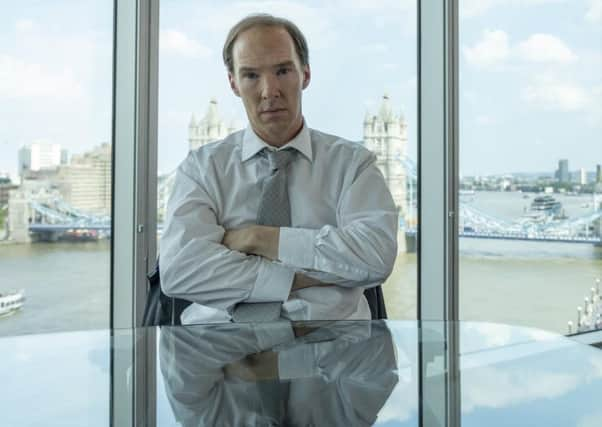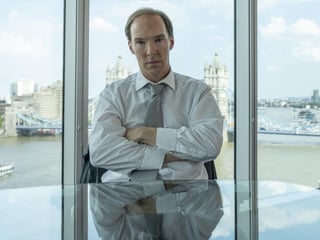Scottish IndyRef: Too toxic for a TV box set? '“ Brian Ferguson


It is just over a week into 2019 and already there is an early contender for the TV event of the year.
Brexit: The Uncivil War, a drama based on first-hand accounts from key players in the “Leave” and “Remain” campaigns, was billed as a behind-the-scenes exploration of one of the biggest political eathquakes of modern times.
Advertisement
Hide AdIt certainly lived up to expectations that it would divide audiences and pundits.
A stellar cast headed up by Benedict Cumberbatch and a clearly well-researched script from James Graham helped ensure that it was one of Britain’s most gripping political thrillers of recent years – even if the ending was never in any doubt.
Just as Press was compelling and infuriating in equal measures for journalists last year, Brexit: The Uncivil War was equally unmissable for political watchers on Monday night.
Yet I can’t have been the only one in Scotland thinking that our own independence debate is ripe for the dramatic treatment in the near future.
I’ve long been of the belief that Scottish politics should be rich picking for writers, directors and producers, but there has been little sign of appetite from the industry to date.
The Scottish Parliament is 20 years old this summer, but how many TV dramas have been set against the backdrop of Holyrood? I can think of a few plays, particularly in the run-up to the 2014 referendum, but nothing that has made it onto the nation’s screens.
Advertisement
Hide AdPerhaps the best Scottish political drama to be told is the real-life one that gripped and divided the nation like never before – and has left a lingering legacy for all involved.
Of course, there is an argument that any drama tackling the 2014 independence debate could easily be overtaken by events.
Advertisement
Hide AdBut there were surely even greater risks with commissioning and making Brexit: The Uncivil War in the recent political climate.
Regardless of any decisions taken by the First Minister and her colleagues over the next few months, the events of five years ago will remain unchanged.
There have, of course, been a few accounts of the 2014 indyref campaign to appear in print, mainly based on the inside story of the Better Together campaign, but none of have really told the inside story of the defeated Yes camp.
One thing is for sure: there is a fascinating story to be told of the highs and lows of a campaign which caught fire in 2014 and campaign agonisingly close, only to fall short after the dramatic intervention of a number of senior Unionist politicians panicked about the prospect of Britain dissolving.
The passage of time may make it easier for many of those involved to open up on what went on behind the scenes, the pivotal moments in the campaign, and the roles played by Alex Salmond and Nicola Sturgeon, who still dominate Scottish politics while many of the key figures from 2014 have retreated from the spotlight.
Of course, any indyref drama would be embroiled in controversy, intrigue and conspiracy theories from day one.
Advertisement
Hide AdThere would be intense scrutiny on its creative team, its funding and its on-screen talent. And which broadcaster would have the nerve, or indeed the resources, to try to get it off the ground? But is any of the above a good enough reason not to pursue it?
What would it say about Scotland if a TV dramatisation of the independence debate is considered too toxic for the industry to touch?
